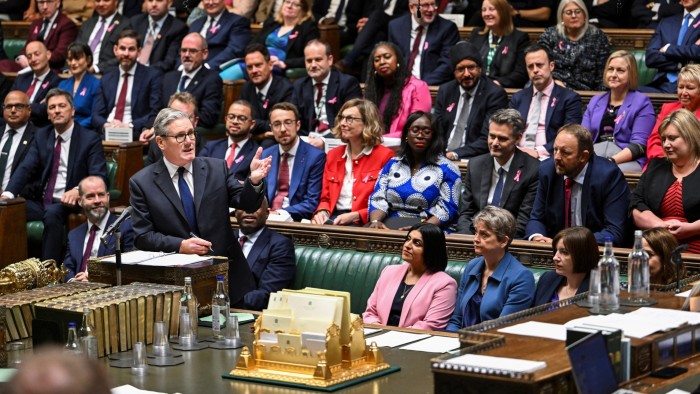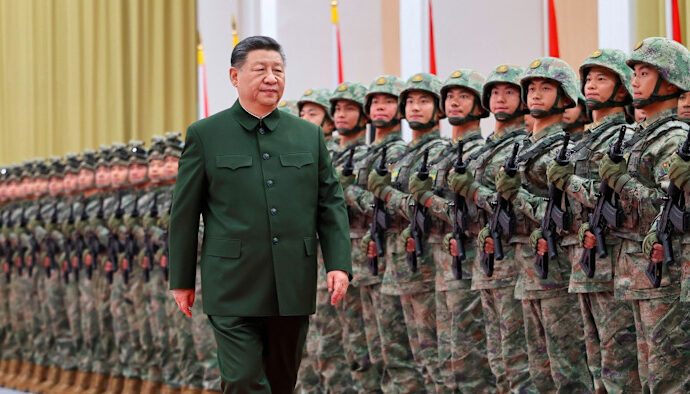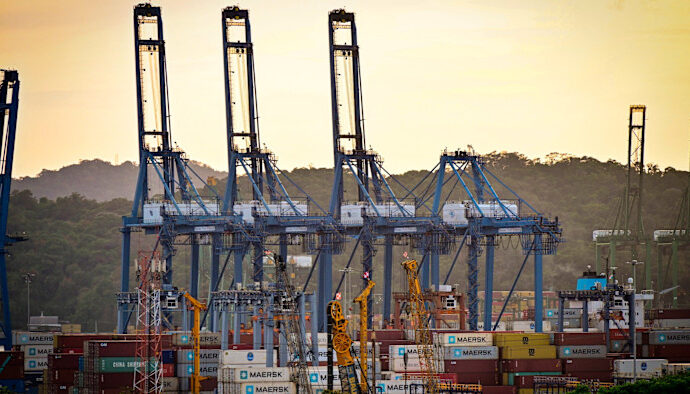
This article is an on-site version of our Inside Politics newsletter. Subscribers can sign up here to get the newsletter delivered every weekday. If you’re not a subscriber, you can still receive the newsletter free for 30 days
Good morning. The government has released its statements over the alleged China spying case. Some brief thoughts on that and the political ramifications of that below.
Inside Politics is edited by Georgina Quach. Follow Stephen on Bluesky and X, and Georgina on Bluesky. Read the previous edition of the newsletter here. Please send gossip, thoughts and feedback to insidepolitics@ft.com
Tricky territory
To recap, the Crown Prosecution Service withdrew charges of espionage against Christopher Cash and Christopher Berry — two British men accused of spying on MPs for Beijing — who had both strenuously denied any wrongdoing and were formally acquitted by the court after the case’s collapse last month. The CPS said it could not go ahead with the prosecution because the government had refused to say in its witness statements that China was a threat to national security between 2021 and 2023, the time of the alleged offences.
Yesterday, the government released the three witness statements provided by Matthew Collins, the deputy national security adviser, about the alleged China spying case. (One in 2023 under the Conservatives, two in 2025 under the Labour government — you can read them all in full here.)
The three statements are all equivocal because, as I wrote earlier this week, the government position, in 2023 under Rishi Sunak and in 2025 under Keir Starmer, has been and remains equivocal. A wholly candid and plain summary of the UK’s China position under Sunak and Starmer would run to just seven words: “let’s not start something we can’t finish”.
Because the Sunak and Starmer governments held ambiguous positions, there’s enough to keep the political row going. There’s enough for the Telegraph to continue to criticise the government’s equivocation on the issue. But Downing Street will feel validated in its decision to publish the statements after both the Times and the Guardian concluded that they leave the CPS facing questions about why it didn’t press ahead given they contained sufficient evidence to take the case to trial. Dominic Grieve, David Cameron’s first attorney-general, has expressed his surprise that the CPS did not go ahead, telling the BBC’s World Tonight programme:
I am a bit mystified, having read the statements, as to what the issue [that blocked the prosecution] actually is.
Although the first statement dwelt particularly on what it was alleged the two individuals had done, the later ones did set out pretty fully what I recollect was the then government’s position on China — ‘epoch-defining and systemic challenge, with implications for almost every area of government policy and the lives of the British people’.
So it didn’t mince words about the Chinese threat. It goes into considerable detail about how that threat had manifested itself.
It is also right, however, that nowhere does it say a threat to our national security. It says a threat to our security of one point, but not to our national security.
And that leaves me extremely puzzled. I am puzzled as to why, in the light of the case which further defined the word enemy, it was felt in those circumstances this prosecution couldn’t proceed.”
That reflects the private consensus among most MPs I’ve spoken to since the statements were released: that it is the CPS facing further questions.
Ultimately, this story — of a British government wanting closer relations with China being forced on to the defensive by events and by the Sinosceptic turn of the Conservative party — will keep resurfacing: my read is that this latest outbreak is almost done, but as a feature of British political life since 2022, it is not going to end anytime soon.
Now try this
Today I have mostly been listening to Nainita Desai’s newish record Tessellation.
Top stories today
Meagre rise | The UK economy expanded 0.1 per cent in August, a lacklustre figure that matched expectations but suggested that tax rises and high interest rates were weighing on activity, as chancellor Rachel Reeves prepared for a tough November Budget.
Bitcoin billions | The UK has proposed establishing a compensation scheme for victims of a Chinese investment fraud that could allow the Treasury to retain much of a £5bn bitcoin fortune.
Top of the agenda | Home secretary Shabana Mahmood admitted that Britain and other countries had lost control of their borders. Earlier this week she attended a summit of European countries focused on measures and agreements to tackle irregular migration in the western Balkans.
Don’t look bloc in anger | Speaking of border “control”, Politico-commissioned polling found that, by a two-to-one margin, voters now favoured the pre-2021 immigration system to the one that has taken shape since Brexit. But the results don’t necessarily mean voters are desperate for a return to EU-style freedom of movement, according to researchers.
Watering down | The requirement for developers to provide affordable housing in London is set to be cut by more than half in a bid to save Labour’s 1.5mn new homes target, Vicky Spratt reported at the i. A leaked memo suggested the target of 35 per cent of new homes could be cut to 20 per cent, of which developers will have to pay for 10 per cent, while the other 10 per cent will come from councils.


